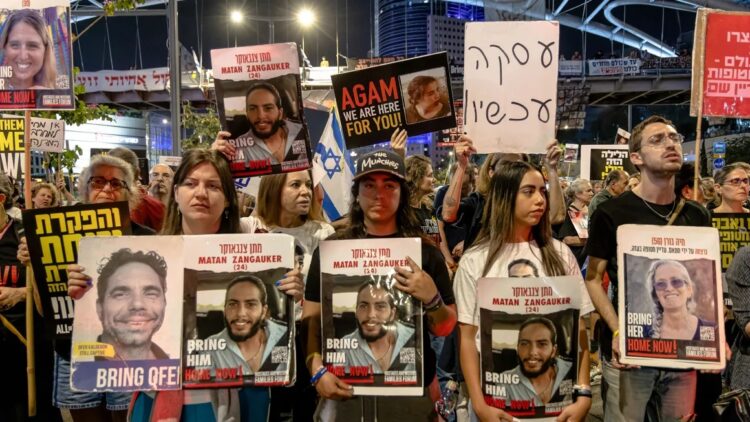Hamas is reportedly evaluating a new proposal presented by Egypt, aiming to secure the release of up to 33 hostages held by the group in exchange for a temporary cessation of hostilities in Gaza. According to sources familiar with the negotiations, the proposal, which Israel has contributed to shaping but has not fully endorsed, is structured in two phases. The initial phase entails the gradual release of 20 to 33 hostages over a span of several weeks, coupled with the release of Palestinian prisoners, in return for a pause in hostilities. Subsequently, the second phase aims to achieve what sources term as the “restoration of sustainable calm,” involving the exchange of remaining hostages, captive Israeli soldiers, and deceased hostages for additional Palestinian prisoners.
This proposal comes after prolonged deadlock in negotiations and carries significant implications for the conflict’s trajectory. Failure to reach an agreement could potentially prompt Israel to escalate its presence in Gaza, with the looming prospect of a large-scale ground invasion into the southern city of Rafah, home to over a million Palestinians. Despite warnings from Israel’s allies, including the United States, against such an operation due to the risk of civilian casualties, Israel awaits a response from Hamas. Hamas leaders are expected to engage with Egyptian and Qatari mediators in Cairo, with a subsequent response anticipated from Hamas leader Yahya Sinwar in the coming days.
The duration of the initial pause in hostilities would reportedly be contingent upon the number of hostages released, with the current framework suggesting a one-day pause for each hostage. However, this parameter remains subject to adjustment during further negotiations. Notably, Israel has agreed to accept fewer hostages in the first phase compared to earlier negotiations, following a recent adjustment in Hamas’s offer.
The proposal has garnered attention from international figures, with US Secretary of State Antony Blinken describing it as “extraordinarily generous on the part of Israel.” Meanwhile, Egyptian Foreign Minister Sameh Shoukry expressed hope for the acceptance of the proposal by both Israel and Hamas, emphasizing the objective of achieving a permanent ceasefire and addressing humanitarian concerns.
In addition to the hostage release and ceasefire, the proposal reportedly includes provisions for the withdrawal of Israeli forces from Gaza and the release of all remaining hostages and deceased individuals. Hamas has insisted on the inclusion of a permanent ceasefire and a full Israeli withdrawal from Gaza in the agreement, while Israel maintains its stance that its operations in Gaza will persist until Hamas is eliminated.
As negotiations progress, the potential for an Israeli military offensive in Rafah remains a looming concern. Israeli sources view the current Egyptian mediation as a final opportunity to avert such an offensive. Despite ongoing preparations, Israel has signaled a willingness to refrain from launching an invasion until concerns raised by the Biden administration are addressed. US President Joe Biden reiterated the need for increased humanitarian assistance and underscored his position on a potential invasion during a recent conversation with Israeli Prime Minister Benjamin Netanyahu.

















Comments